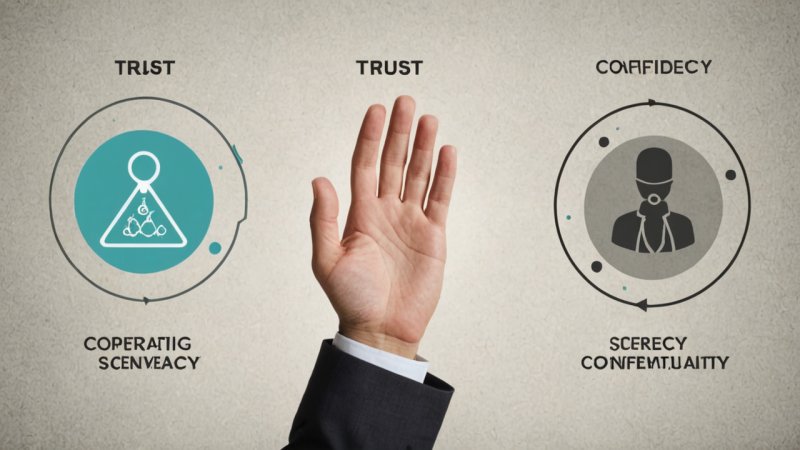In today's fast-paced and information-driven world, corporate transparency has emerged as a key factor influencing consumer trust. As businesses operate in an increasingly scrutinized environment, the way they communicate their practices, values, and operations can significantly affect public perception. This article will compare corporate transparency with corporate secrecy, examining the pros and cons of each approach and their respective impacts on consumer trust.
Understanding Corporate Transparency
Corporate transparency refers to the openness and clarity with which a company shares information about its operations, practices, and policies. This can include financial disclosures, supply chain practices, and ethical standards. The goal of transparency is to build trust with consumers, stakeholders, and the public.
Pros of Corporate Transparency
- Builds Trust: Transparency fosters trust among consumers who appreciate honesty and openness.
- Enhances Reputation: Companies that are transparent often enjoy a better public image, which can lead to increased customer loyalty.
- Encourages Accountability: Transparency holds companies accountable for their actions, leading to higher ethical standards.
- Informs Consumer Choices: When consumers have access to information, they can make informed decisions that align with their values.
Cons of Corporate Transparency
- Risk of Misinterpretation: Information shared can be misunderstood or misrepresented, potentially damaging a company's reputation.
- Competitive Disadvantage: Revealing too much information may give competitors an edge in the market.
- Increased Scrutiny: Transparency can lead to more scrutiny from regulators and the public, which may result in pressure for constant improvement.
Understanding Corporate Secrecy
Corporate secrecy, on the other hand, involves withholding information about a company’s operations, strategies, and financial performance. While some level of confidentiality is necessary for business operations, excessive secrecy can lead to distrust and skepticism among consumers.
Pros of Corporate Secrecy
- Protects Competitive Advantage: Keeping certain information confidential can help maintain a company's market position.
- Reduces Scrutiny: Companies can operate without the pressure of public oversight, allowing for more flexibility in decision-making.
- Minimizes Risk: Withholding sensitive information can protect a company from potential backlash or criticism.
Cons of Corporate Secrecy
- Decreases Trust: Consumers may view secretive companies with suspicion, leading to a lack of trust.
- Negative Reputation: Companies that are perceived as secretive may struggle with public relations and consumer loyalty.
- Limited Consumer Engagement: Without transparency, consumers may feel disconnected from the brand and less engaged.
Comparative Analysis: Transparency vs. Secrecy
When comparing corporate transparency and corporate secrecy, several key differences emerge that can significantly impact consumer trust.
Impact on Consumer Trust
Research has shown that transparency is closely linked to consumer trust. Brands that openly share their values, practices, and challenges often enjoy higher levels of consumer loyalty. In contrast, companies that maintain high levels of secrecy may foster distrust, leading consumers to question their motives and ethics.
Long-Term vs. Short-Term Gains
While corporate secrecy may provide short-term advantages, such as protecting sensitive information and maintaining a competitive edge, the long-term consequences can be detrimental. In a world where consumers increasingly seek ethical and responsible brands, transparency can lead to sustainable success and long-lasting customer relationships.
Brand Loyalty and Advocacy
Transparent companies often cultivate brand advocates who are willing to promote the brand and its values. In contrast, secretive companies may find it challenging to build a loyal customer base, as consumers may be less inclined to support brands they do not trust.
Case Studies: Successful Transparency
Several companies exemplify the benefits of corporate transparency. For instance, Patagonia, an outdoor clothing brand, is known for its commitment to environmental sustainability and ethical practices. By openly sharing its supply chain information and environmental impact, Patagonia has built a strong reputation and loyal customer base.
On the other hand, companies that have faced backlash due to secrecy include Volkswagen, which suffered significant damage to its reputation following the emissions scandal. The lack of transparency surrounding its practices led to a loss of consumer trust and a decline in sales.
Conclusion
In conclusion, the comparison between corporate transparency and corporate secrecy reveals significant implications for consumer trust. While corporate secrecy may offer short-term benefits, the long-term advantages of transparency—such as enhanced trust, brand loyalty, and a positive reputation—are compelling. Companies should strive to find a balance that protects their competitive edge while fostering an open and honest relationship with consumers. Ultimately, embracing transparency can lead to greater consumer trust and sustainable business success.






